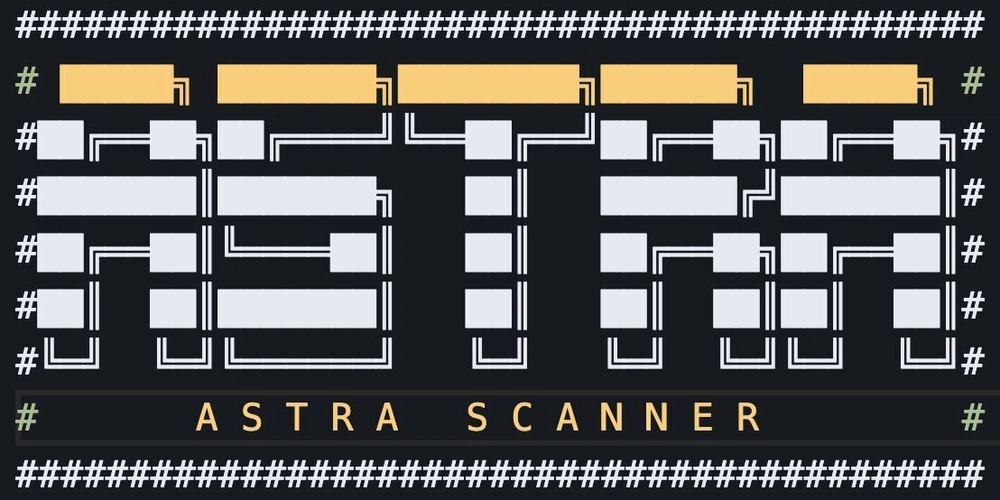Types of Word Puzzle Games: A Comprehensive Guide to Brain-Teasing Fun
Word puzzle games have captivated minds for centuries, evolving from simple pen-and-paper challenges to sophisticated digital experiences. These engaging brain teasers combine language skills with problem-solving, offering entertainment that's both fun and mentally stimulating. Whether you're a casual player looking to pass time or a word game enthusiast seeking new challenges, understanding the different types of word puzzle games can help you find the perfect match for your skills and interests.
Types of Word Puzzle Games: A Comprehensive Guide to Brain-Teasing Fun
Introduction to Word Puzzle Games
Word puzzle games have captivated minds for centuries, evolving from simple pen-and-paper challenges to sophisticated digital experiences. These engaging brain teasers combine language skills with problem-solving, offering entertainment that's both fun and mentally stimulating. Whether you're a casual player looking to pass time or a word game enthusiast seeking new challenges, understanding the different types of word puzzle games can help you find the perfect match for your skills and interests.
In this comprehensive guide, we'll explore the vast world of word puzzles, categorizing them by their unique mechanics, difficulty levels, and appeal. From classic crosswords to modern digital hybrids, discover how each type exercises your brain in different ways and where to find the best versions of each puzzle format.
Why Word Puzzles Matter
Before diving into specific types, it's worth noting why word puzzles remain so popular:
✔ Cognitive benefits - Improve vocabulary, memory, and problem-solving skills
✔ Accessibility - Available in various formats for all age groups
✔ Educational value - Excellent tools for language learning
✔ Stress relief - Provide focused mental engagement
✔ Social connection - Many have competitive or cooperative multiplayer options
Traditional Paper-Based Word Puzzles
1. Crosswords
The most iconic word puzzle features:
-
Grid of white and black squares
-
Numbered clues (across and down)
-
Increasing difficulty throughout the week (easiest on Monday)
Variations:
-
Cryptic crosswords (complex British-style clues)
-
Diagramless (no black square indicators)
-
Theme crosswords (all answers relate to a subject)
2. Word Searches
Basic mechanics:
-
Grid filled with random letters
-
Hidden words to find (forward, backward, diagonal)
-
Often organized by themes
Educational Uses:
-
Vocabulary builders for students
-
Thematic learning tools (science terms, historical figures)
3. Cryptograms
Cipher-based puzzles where:
-
Each letter represents another
-
Quotes or phrases are encoded
-
Frequency analysis helps solve
Appeal:
-
Develops pattern recognition
-
Teaches basic cryptography concepts
4. Anagrams
Letter rearrangement challenges:
-
Scrambled words/phrases to decode
-
Often reveal famous names or quotes
-
Range from simple to extremely complex
Example:
"Listen" → "Silent"
5. Acrostics
Sophisticated puzzles where:
-
Initial letters of answers spell a quote
-
Combine crossword and cryptogram elements
-
Typically feature literary themes
Modern Digital Word Puzzles
6. Word Scramble Games
Popular digital versions include:
-
Wordscapes (crossword-style with letter wheel)
-
Text Twist (make words from random letters)
-
Word Cookies (baking-themed word creation)
Features:
-
Timed challenges
-
Progressive difficulty
-
Daily puzzles
7. Word Connection Puzzles
Innovative formats like:
-
Wordle (viral 5-letter guessing game)
-
Connections (NYT's category-matching game)
-
Red Herring (identifying the odd word out)
Appeal:
-
Simple daily formats
-
Shareable results
-
Quick to learn
8. Word Ladders
Also called "doublets," these:
-
Change one letter at a time
-
Transform start word to end word
-
All intermediate steps must be valid words
Example:
COLD → CORD → CARD → WARM
9. Hidden Meaning Puzzles
Creative formats including:
-
Rebus puzzles (visual word representations)
-
Dingbats (pictorial wordplay)
-
Charades (word-based guessing game)
Example:
"Stand" + "I" → "I understand" (homophone puzzle)
Board and Card Word Games
10. Scrabble & Variants
The classic word-building game features:
-
Letter tiles with point values
-
Bonus squares on board
-
Strategic placement scoring
Modern Versions:
-
Words With Friends (digital adaptation)
-
Scrabble Slam (fast-paced card version)
-
Scrabble Junior (for younger players)
11. Boggle
Timed word search with:
-
4x4 or 5x5 letter grid
-
Connect adjacent letters
-
Longer words score more
Digital Adaptations:
-
Boggle With Friends
-
Word Streak by Boggle
12. Bananagrams
Fast-paced alternative to Scrabble:
-
No board - build personal crossword
-
Race to use all tiles
-
Great for groups
13. Codenames
Team-based word association:
-
Spymasters give one-word clues
-
Field operatives guess words
-
Avoid the assassin
Educational Word Puzzles
14. Vocabulary Builders
Specifically designed puzzles:
-
SAT/ACT prep crosswords
-
GRE word puzzles
-
ESL vocabulary games
Benefits:
-
Contextual learning
-
Engaging study method
-
Retention improvement
15. Morphology Puzzles
Focus on word structure:
-
Prefix/suffix identification
-
Root word analysis
-
Word family grouping
16. Pangram Challenges
Using all alphabet letters:
-
Perfect pangrams (using each letter once)
-
Classic example: "The quick brown fox jumps over the lazy dog"
-
Popular in spelling bee training
Specialty Word Puzzles
17. Lipograms
Constrained writing puzzles:
-
Omit specific letters
-
Famous example: "Gadsby" (50,000-word novel without 'E')
-
Challenging but creative
18. Word Sudoku
Hybrid puzzles combining:
-
Traditional Sudoku grids
-
Letter placement rules
-
Additional word constraints
19. Word Math Puzzles
Numerical word challenges:
-
Alphametics (letters represent digits)
-
Word equations (if CAT=6, DOG=7, etc.)
-
Letter value sums
Choosing the Right Word Puzzle
Consider these factors when selecting word games:
By Difficulty Level
-
Beginner: Word searches, simple crosswords
-
Intermediate: Standard cryptograms, Wordle
-
Advanced: Cryptic crosswords, acrostics
By Time Commitment
-
Quick play: Wordle, Boggle (3-5 minutes)
-
Moderate: Daily crossword (15-30 minutes)
-
Extended: Cryptic crossword (1+ hours)
By Learning Goal
-
Vocabulary building: SAT crosswords, word scrambles
-
Pattern recognition: Cryptograms, anagrams
-
Lateral thinking: Rebus, dingbats
Digital vs. Traditional Word Puzzles
| Feature | Digital Puzzles | Paper Puzzles |
|---|---|---|
| Convenience | Available anytime | Need physical copy |
| Feedback | Instant solutions | Manual checking |
| Variety | Infinite generations | Fixed content |
| Portability | All devices | Needs carrying |
| Social Aspect | Online sharing | In-person solving |
Benefits of Regular Word Puzzle Play
Scientific studies have shown that consistent word puzzle engagement:
1. Enhances Cognitive Function
-
Improves memory recall
-
Strengthens problem-solving abilities
-
Maintains mental flexibility
2. Delays Cognitive Decline
-
Associated with later onset of dementia
-
Keeps language centers active
-
Builds cognitive reserve
3. Reduces Stress
-
Provides focused distraction
-
Creates sense of accomplishment
-
Offers meditative quality
4. Expands Vocabulary
-
Exposes players to new words
-
Reinforces word meanings
-
Improves spelling skills
Where to Find Quality Word Puzzles
Newspapers & Magazines
-
New York Times Crossword
-
Wall Street Journal puzzles
-
Penny Press/Games Magazine
Books & Collections
-
Will Shortz puzzle books
-
Merriam-Webster vocabulary puzzles
-
Specialty puzzle publications
Digital Platforms
-
Apps: NYT Games, Wordscapes, Lovatts
-
Websites: Puzzle Society, Boatload Puzzles
-
Subscriptions: AARP Brain Games, Puzzler
Frequently Asked Questions
Q1: What's the best word puzzle for beginners?
A: Word searches and simple crosswords provide gentle introductions to word puzzles.
Q2: Are digital word puzzles as beneficial as paper ones?
A: Research suggests both formats offer similar cognitive benefits, though writing by hand may provide additional memory advantages.
Q3: How often should I do word puzzles?
A: Daily practice shows the most benefit, even if just 10-15 minutes per day.
Q4: Can word puzzles really improve my vocabulary?
A: Absolutely! Regular exposure to new words in context significantly expands vocabulary.
Q5: What's the most challenging type of word puzzle?
A: Cryptic crosswords are widely considered the most difficult due to their complex clueing systems.
Conclusion: The Enduring Appeal of Word Puzzles
The diverse types of word puzzle games offer something for every interest and skill level, from relaxing word searches to mentally demanding cryptic crosswords. As we've explored, these engaging brain teasers provide far more than simple entertainment - they're powerful tools for cognitive maintenance, vocabulary building, and stress relief that can be enjoyed throughout one's lifetime.
Whether you prefer the tactile experience of pencil-on-paper puzzles or the convenience of digital apps, incorporating word games into your routine can lead to measurable improvements in language skills and mental acuity. The variety available today means you can constantly find fresh challenges to keep your mind sharp and engaged.
Also Check Out More Game : word games






























































































